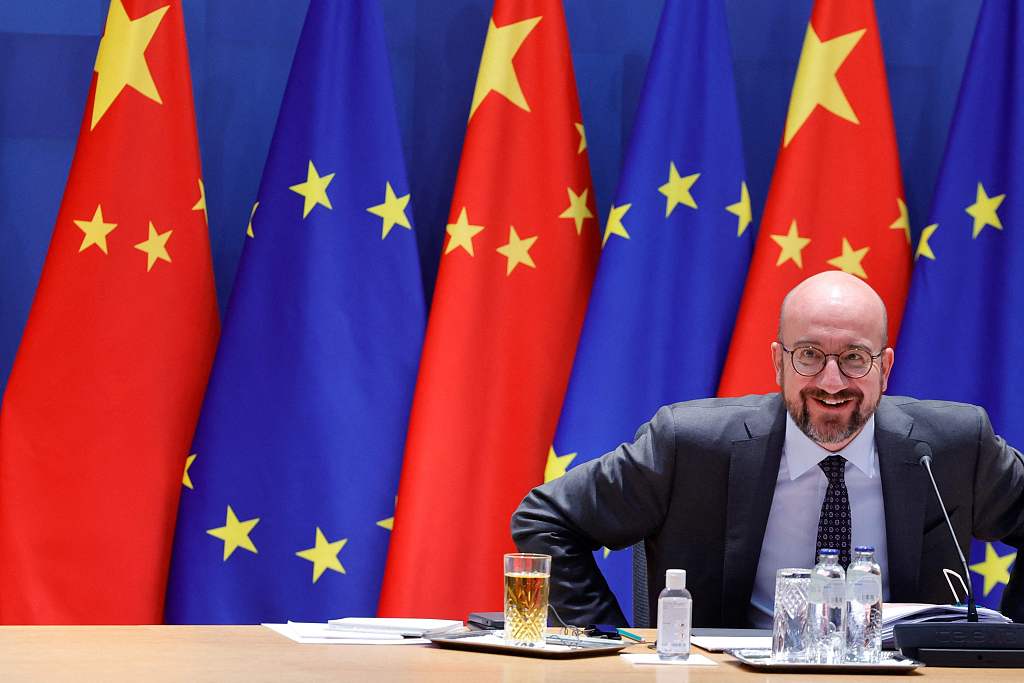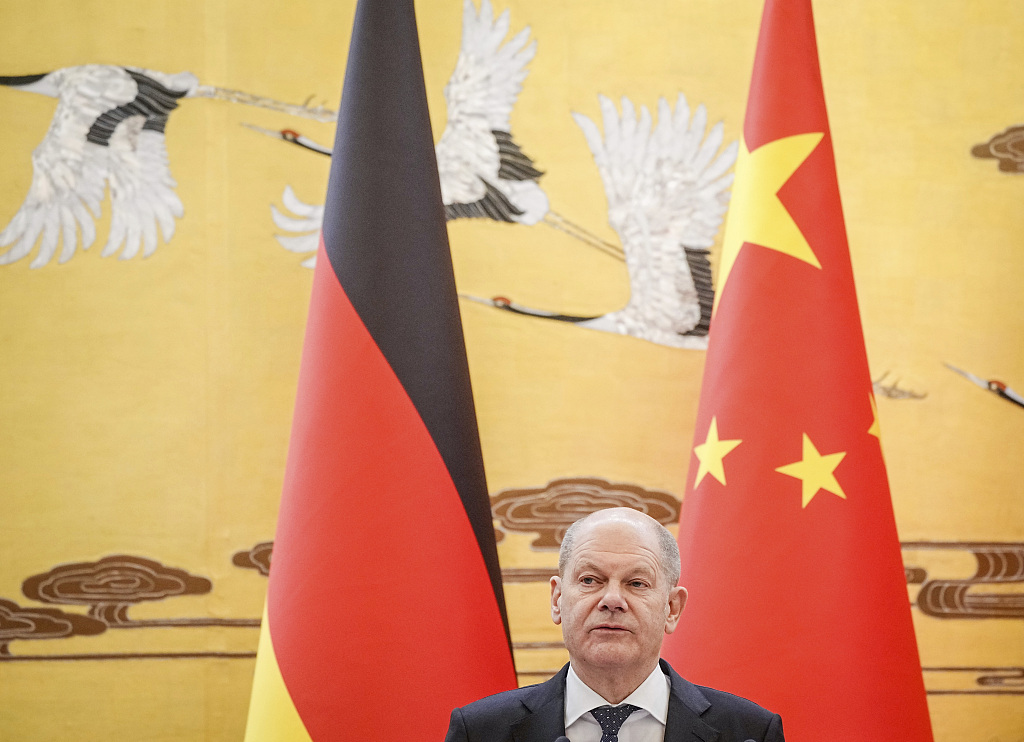Face-to-face talks are more important than ever. Charles Michel's spokesperson Barend Leyts said that against the backdrop of a tense geopolitical and economic environment, the visit is a timely opportunity for both the EU and China to engage. In the past three years, it's not only China and Europe that have changed a lot but so has the world.

European Council President Charles Michel at EU-China summit via video-conference at the European Council building in Brussels, April 1, 2022./VCG
European Council President Charles Michel at EU-China summit via video-conference at the European Council building in Brussels, April 1, 2022./VCG
European Council President Charles Michel, who represents the EU's 27 member states, visits China and meets with Chinese President Xi Jinping and other senior Chinese officials. In October 2016, Charles Michel visited China and met with President Xi as then Belgian Prime Minister.
Many observers and European media have highlighted that it's the first time an EU president has had a face-to-face meeting with Chinese President Xi since 2018, and it's the visit following the European Council's strategic discussion on the European Union's relations with China in October. This is the first official meeting between the leaders of China and the EU since the conclusion of the 20th National Congress of the Communist Party of China last month.
In that discussion, Council president Michel said that the EU was not looking for "systematic confrontation" with China, rejected the term misguided by the American-style democracy vs. autocracy narrative, and insisted that the bloc has its "own model for developing" at a time of intensifying rivalry between China and the United States. Beijing and Brussels have started to shift from some earlier differences to more common ground.
Therefore, for European think tanks and observers, it's necessary to follow that leaders of both sides have maintained close communications via several virtual meetings during the pandemic.
In April this year, Chinese President Xi Jinping met via video link with President Charles Michel of the European Council and President Ursula von der Leyen of the European Commission at the 23rd China-EU Summit. In an October phone conversation with President Xi, Charles Michel reaffirmed that the EU and its member states are dedicated to strengthening strategic independence, facing dynamics in the international landscape.
Charles Michel has emphasized 'Strategic autonomy for Europe - the aim of our generation' in various events. And China's stance of supporting Europe's strategic autonomy has been deeply rooted in the minds of people from the political, business, and academic spheres in China. Taking my experiment of doing studies of international relations at China Foreign Affairs University as an example, the mentioned opinion was already widely accepted.
Recently, Chinese and European leaders have intensified face-to-face talks and frankly exchanged views. German Chancellor Olaf Scholz's Beijing trip in November reassured that the locomotive of European economies wouldn't decouple with China. In the meetings between leaders of European countries and Chinese President Xi at the G20 summit in Bali, Indonesia, "opposing decoupling" is the main theme, though differences remain.

German Chancellor Olaf Scholz gives a press conference at the Great Hall of the People in Beijing during his visit to China, November 2022./VCG
German Chancellor Olaf Scholz gives a press conference at the Great Hall of the People in Beijing during his visit to China, November 2022./VCG
China needs Europe and vice versa. China and Europe have formed a strong relationship of economic interdependency through decades of cooperation.
It's not surprising that there are differences in China policy between European countries and within them. It's also not surprising that China and Europe have some competition, disputes, and differences since both sides are different in history, culture, social systems, and stages of development. In terms of China-EU engagement, it shall be emphasized that Beijing's stance that China and the EU should act as two major forces upholding world peace has never changed.
But in the EU's 27 member states, almost half of the national governments are formed by over three political parties with far-ranging ideologies. Can the EU decision-makers maintain the stability and consistency of the policies and not be disturbed by the increasingly persistent populist political atmosphere, entrenched internal contradictions, and conservative policy leaning? How to repair the mutual strategic trust and bolster mutual understanding in political and security areas? Maybe more frequent visits between China and European leaders are needed.